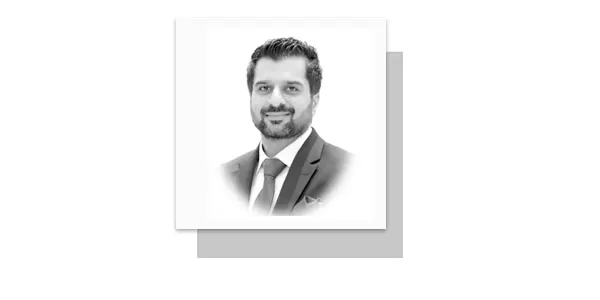THE yearning for admiration surpasses all other human needs because social acceptance brings power, wealth and influence. Recognition was a widespread goal among the people of ancient civilizations. Today, Facebook and TikTok give everyone the means to reach a large audience and spread their influence. It’s a known fact that a man is shaped by what he reads and interacts with. The effect of these social media applications has been enormous. There are both good and bad points about these social media platforms. The future of nations is shaped by content shared on these platforms.
Social media users’ posts and interactions on these platforms display their hobbies, personal histories and daily schedules. For social media firms, user-provided data is their most precious resource. The companies behind these apps use them for data extraction. These companies share this data with national and international ones, who then create and sell products based on user preferences. Damian Collins has brought this issue to light before.
Damian Collins MP, Chair of the UK Parliament’s Digital, Culture, Media and Sport Committee, commented that Facebook’s claim of not selling user data needs serious scrutiny. He said, “They may not be letting people take it away by the bucket load, but they do reward companies with access to data that others are denied if they place a high value on the business they do together. This is just another form of selling.”
In addition to this, political outcomes across countries have been impacted by these platforms. Young voters in key election battlegrounds are influenced by fake AI-generated videos featuring party leaders, misinformation and biased clips. With TikTok emerging as a new social media battleground in elections, the political parties use the app to influence its audience of young voters. A BBC study of social media algorithms shows TikTok exposes young users to misleading and divisive content, alongside entertaining videos. Students, political activists, comedians and anonymous bots all share it. Many find TikTok and Facebook distracting. It distracts people, providing a platform filled with time-wasting activities, such as watching family vlogs and pointless videos. This is especially relevant to TikTok users. TikTok’s rise has correlated with a decline in attention spans for millions globally.
To determine the decline in teen attention spans, Dr. Gloria Mark and her team at the University of California-Irvine conducted an experiment, revealing that in 2004, individuals could focus for an average of over two and a half minutes. By 2012, the number had fallen to 76 seconds. That figure was almost halved by 2024, reaching 46 seconds. These findings suggest TikTok has permanently altered attention spans. Millions of brains have suffered irreversible negative alterations and transformations.
The fleeting dopamine rush from short videos trumps productivity, fostering apathy and laziness in the younger generation. Facebook use diminishes users’ ability to concentrate, thereby reducing life efficiency. Thus, Facebook usage is detrimental. The normalization of hate speech and misinformation is evident on Facebook and TikTok. The spread of hatred stems from people sharing news without checking its truth. Since Facebook and TikTok went global, the spread of misinformation has accelerated. Seeing and hearing something makes people believe it, naturally. This becomes a problem when people believe everything they see and hear on Facebook and share unreliable information.
A vigilance mechanism is needed to curb the spread of fake news and hate speech on Facebook. States and civil society should form a global body to regulate this platform. Facebook offers many advantages, but its downsides can be mitigated through user education promoting community benefit. The time has come for a global entity to be formed to curb the adverse societal impacts of these applications. These applications’ data extraction necessitates a global watchdog. In addition, to combat misuse, Facebook and TikTok accounts should implement a registration process akin to SIM card registration. Facebook and TikTok’s meteoric rise has boosted connectivity and creativity but also caused addiction, lower productivity, mental health problems and misinformation. To lessen these impacts, proactive strategies and technological advancements are crucial. Users can control their screen time and thus set personal boundaries using the app’s built-in tools or third-party apps. Prioritizing real-world hobbies, in-person connections and learning can shift your focus to more fulfilling activities. In addition, social media firms should be encouraged to promote healthy app usage habits. A helpful step would be for phone makers to include a feature that caps the daily use of apps such as Facebook and TikTok at two hours. Direct OS integration of this feature would stop users from exceeding limits and promote fair usage. This might motivate users to engage more with the real world, improving their mental and emotional health. A healthier digital ecosystem is achievable through a blend of personal initiative and technological progress.
Likewise, communities should also take steps to restrict their young children under eighteen from using such applications to minimize app addiction and the apps’ negative impact on their attention. Lastly, communities urgently need social media literacy. Effective use of these applications necessitates annual regulation and monitoring reports. Facebook and TikTok offer vast opportunities across many life areas but also carry negative consequences requiring policy intervention to make them constructive platforms. The world has been transformed by social media platforms. Millions use Facebook and TikTok, making them the top social media apps. Global harmony requires maximizing the benefits and minimizing the harms of this technology. Facebook and TikTok, through positive action, could reshape the social, political and economic fabric of countries worldwide.
—The writer is an educationist and a Commoner from 44th Common, based in Sargodha.










